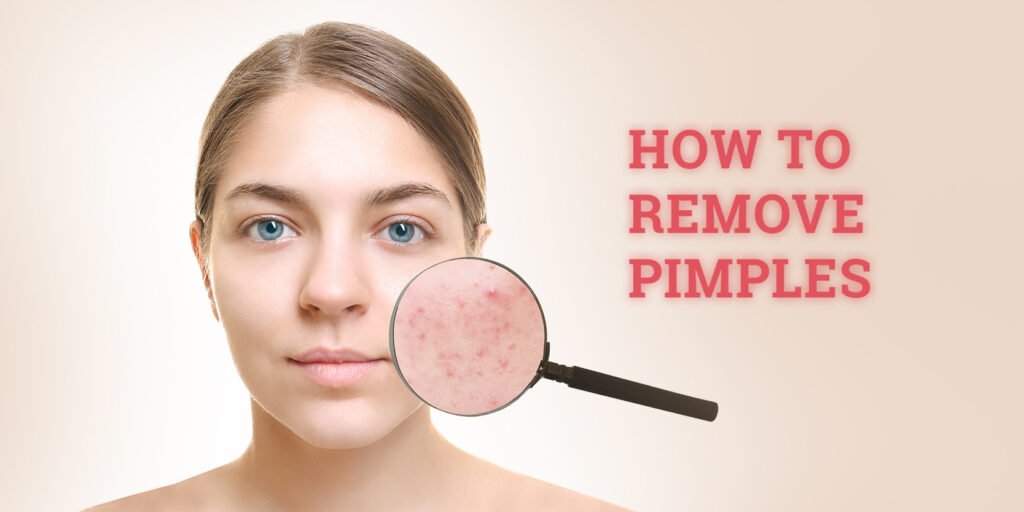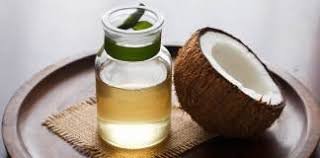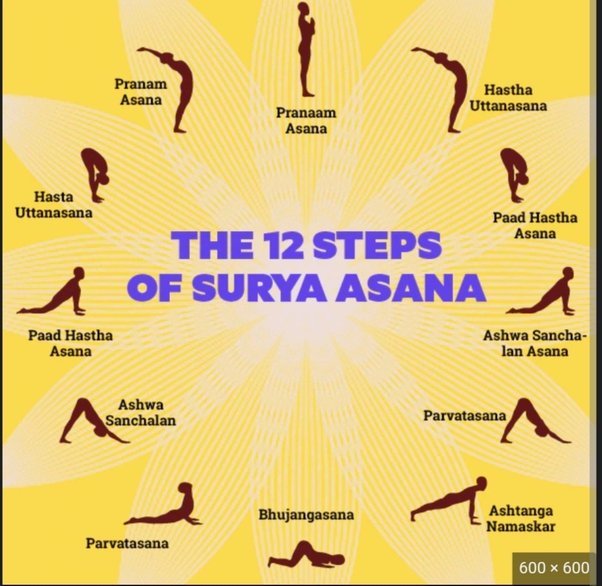
Table of Contents
Get rid of Pimples in simpleways ( Introduction )
Dealing with pimples can be frustrating and challenging, but with the right approach, you can effectively manage and reduce them. Pimples, also known as acne, are a common skin concern that can affect people of all ages. They typically occur when hair follicles become clogged with oil, dead skin cells, and bacteria, leading to inflammation, redness, and sometimes pain.
The process of getting rid of pimples involves a combination of proper skincare practices, lifestyle adjustments, and, in some cases, medical intervention. While there’s no one-size-fits-all solution due to variations in skin types and causes of acne, following a consistent routine and being patient can help you achieve clearer skin.
In this guide, we’ll explore a range of approaches to help you effectively manage and reduce pimples. From practicing good hygiene and using suitable skincare products to making healthy dietary choices and seeking professional advice when needed, taking proactive steps can lead to noticeable improvements in your skin’s appearance and your overall confidence.
Remember, addressing pimples is a gradual process, and quick fixes might not yield long-term results. By understanding the underlying causes and implementing a holistic approach, you can be on your way to achieving healthier, clearer skin.
how to get rid of pimples in 13 ways
Getting rid of pimples involves a combination of good skincare practices, a healthy lifestyle, and sometimes medical intervention. Here are some steps you can take:
- Cleanse your face: Use a gentle, non-comedogenic cleanser to clean your face twice a day (morning and night). Avoid over-cleansing or using harsh scrubs, as this can irritate your skin and worsen acne.
- Avoid touching your face: Touching your face with dirty hands can transfer bacteria and irritate your skin, leading to more breakouts.
- Use non-comedogenic products: Use skincare and makeup products labeled as non-comedogenic or oil-free. These products are less likely to clog your pores.
- Keep your hair clean: If you have oily hair, make sure to wash it regularly and keep it off your face to prevent oil and dirt from clogging your pores.
- Don’t pop pimples: Popping or squeezing pimples can lead to inflammation, scarring, and more breakouts. If you feel the need to pop a pimple, it’s best to do so under sterile conditions or have a dermatologist handle it.
- Use topical treatments: Over-the-counter topical treatments containing ingredients like benzoyl peroxide, salicylic acid, or sulfur can help treat mild acne by reducing inflammation and unclogging pores. Start with a lower concentration to avoid excessive dryness or irritation.
- Moisturize: Even if you have oily skin, using a lightweight, non-comedogenic moisturizer can help maintain the skin’s barrier function and prevent overproduction of oil.
- Sun protection: Use a broad-spectrum sunscreen with at least SPF 30 to protect your skin from UV rays. Some acne treatments can increase sensitivity to the sun.
- Healthy diet: While there isn’t a direct link between diet and acne, eating a balanced diet rich in fruits, vegetables, whole grains, and lean proteins can contribute to overall skin health.
- Stay hydrated: Drinking enough water helps keep your skin hydrated and may promote healthy skin.
- Reduce stress: Stress can contribute to acne flare-ups. Practice stress-relief techniques like meditation, yoga, deep breathing, or spending time doing activities you enjoy.
- Avoid irritants: Avoid using harsh exfoliants, fragrances, and products that can irritate your skin. Choose gentle and fragrance-free options.
- Consult a dermatologist: If your acne is severe, persistent, or causing emotional distress, consider seeing a dermatologist. They can recommend prescription-strength treatments like topical retinoids, antibiotics, or oral medications.
Remember that results might not be immediate, and consistency is key. It’s also important to note that everyone’s skin is different, so what works for one person might not work for another. Patience and a personalized approach are essential in managing and treating acne effectively.
also readHow to Get naturally smoother hair
how to get rid of pimples naturally and permanently
Getting rid of pimples naturally and permanently requires consistent care and attention to your skincare routine, diet, and overall lifestyle. While there’s no guaranteed way to completely eliminate pimples, these natural approaches can significantly help in managing and preventing breakouts over the long term:
- Maintain a Consistent Cleansing Routine:
- Cleanse your face twice a day using a gentle, natural cleanser.
- Avoid harsh soaps or cleansers that can strip your skin’s natural oils.
- Stay Hydrated:
- Drink plenty of water to keep your skin hydrated from the inside out.
- Healthy Diet:
- Consume a balanced diet rich in fruits, vegetables, whole grains, and lean proteins.
- Limit sugary, greasy, and processed foods, as they may contribute to acne.
- Consider incorporating foods high in antioxidants and omega-3 fatty acids, like berries and fatty fish.
- Avoid Dairy and High-Glycemic Foods:
- Some individuals find that reducing dairy and high-glycemic foods can improve their skin’s condition.
- Herbal Remedies:
- Tea tree oil, with its natural antibacterial properties, can be applied topically to affected areas.
- Aloe vera gel can help soothe and reduce inflammation.
- Gentle Exfoliation:
- Use natural exfoliants like a gentle sugar scrub or oatmeal mask once or twice a week to remove dead skin cells and prevent clogged pores.
- Steam:
- Steam your face over a bowl of hot water with a towel draped over your head. This can help open pores and promote circulation.
- Avoid Touching Your Face:
- Touching your face can transfer bacteria and oil, exacerbating breakouts.
- Stress Management:
- Practice stress-reduction techniques like meditation, yoga, or deep breathing, as stress can contribute to acne.
- Adequate Sleep:
- Get enough sleep to allow your body to repair and regenerate skin cells.
- Regular Exercise:
- Exercise promotes healthy circulation, which can benefit your skin.
- Avoid Over-Cleansing or Over-Treating:
- Overusing harsh products or cleansing too frequently can irritate your skin and make acne worse.
- Natural Masks:
- Some natural ingredients like honey, yogurt, and clay can be used in homemade masks to soothe and cleanse the skin.
- Sun Protection:
- Use a natural, non-comedogenic sunscreen to protect your skin from UV rays.
Remember that natural remedies might take time to show results, and what works for one person may not work for another. If your acne is severe or persistent, consider consulting a dermatologist for personalized advice and treatment options. The key is to adopt a holistic approach that includes both external care and lifestyle adjustments for the best chances of achieving clearer skin in the long run.

How to get rid of pimples overnight
While it’s unrealistic to expect pimples to completely disappear overnight, there are steps you can take to reduce the size, redness, and discomfort of a pimple in a short period. Keep in mind that individual results may vary, and these methods might not work for every type of pimple. Here’s what you can try:
- Cleanse Gently: Wash your face with a mild cleanser to remove dirt and excess oil. Avoid scrubbing aggressively, as this can irritate the pimple and surrounding skin.
- Spot Treatment: Apply a spot treatment containing benzoyl peroxide, salicylic acid, or tea tree oil directly onto the pimple. These ingredients can help reduce inflammation and speed up the healing process.
- Ice Compress: Wrap an ice cube in a clean cloth and apply it to the pimple for a few minutes. This can help reduce swelling and redness by constricting blood vessels.
- Drying Agents: Dab a small amount of calamine lotion or a clay mask on the pimple. These products can help absorb excess oil and reduce inflammation.
- Toothpaste (Caution): Some people find that applying a small amount of white toothpaste (not gel) to the pimple before bed can help reduce its appearance. However, this is not suitable for everyone and can be irritating to the skin, so use this method with caution.
- Overnight Pimple Patches: These adhesive patches contain ingredients that draw out impurities and protect the pimple from further contamination. They can also help reduce the pimple’s appearance by morning.
- Hands Off: Avoid touching, picking, or squeezing the pimple, as this can worsen inflammation and lead to scarring.
- Elevated Pillow: Sleeping with your head slightly elevated can help reduce blood flow to the pimple and prevent further swelling.
- Hydration and Avoid Irritants: Drink plenty of water and avoid using harsh or heavily scented products on your skin.
- Clean Bedding and Pillowcase: Sleeping on clean bedding and changing your pillowcase regularly can prevent bacteria and oils from transferring to your skin.
Remember, while these tips might help minimize the appearance of a pimple overnight, they might not completely eliminate it. Also, be cautious when trying new products or remedies, as some can cause skin irritation or allergic reactions. If you have an important event coming up and want to improve the appearance of your skin, consider using makeup techniques to conceal the pimple temporarily. For a more lasting solution, focus on a consistent skincare routine and healthy lifestyle practices. If pimples are a recurring issue, consulting a dermatologist for professional advice is recommended.
How to get rid of pimples at home
Getting rid of pimples at home involves a combination of proper skincare, hygiene, and using natural remedies. Here’s a step-by-step guide on how to address pimples using home-based methods:
- Cleanse Regularly:
- Wash your face twice a day with a gentle cleanser to remove dirt, oil, and makeup. Avoid harsh cleansers that can strip your skin’s natural oils.
- Spot Treatments:
- Apply a spot treatment with active ingredients like benzoyl peroxide (for bacterial control) or salicylic acid (for exfoliation and unclogging pores) directly onto pimples.
- Natural Remedies:
- Tea Tree Oil: Known for its antibacterial properties, dilute tea tree oil with a carrier oil and apply it to the pimple.
- Aloe Vera Gel: Apply a small amount of pure aloe vera gel to soothe inflammation and redness.
- Honey: Dab a bit of raw honey onto pimples for its antibacterial and anti-inflammatory effects.
- Witch Hazel: Apply witch hazel with a cotton ball to help reduce inflammation and oiliness.
- Ice: Place an ice cube wrapped in a cloth on the pimple to reduce swelling and redness.
- Lemon Juice: Dilute lemon juice with water and apply it to pimples as a natural astringent. Be cautious, as lemon juice can be drying and irritating for some skin types.
- Moisturize:
- Use a lightweight, non-comedogenic moisturizer to keep your skin hydrated without clogging pores.
- Hands Off:
- Avoid touching, picking, or squeezing pimples, as this can worsen inflammation and lead to scarring.
- Healthy Diet:
- Consume a balanced diet rich in fruits, vegetables, whole grains, and lean proteins.
- Limit sugary and greasy foods, which can contribute to acne.
- Hydration and Sleep:
- Drink plenty of water to keep your skin hydrated, and ensure you’re getting adequate sleep for skin regeneration.
- Clean Bedding and Pillowcases:
- Regularly change your pillowcase and keep your bedding clean to prevent oil and bacteria transfer to your skin.
- Stress Management:
- Practice stress-reduction techniques such as meditation, yoga, or deep breathing.
- Exercise:
- Engage in regular physical activity to promote healthy circulation and overall skin health.
- Avoid Irritating Products:
- Steer clear of harsh exfoliants, heavy makeup, and fragranced products that can irritate your skin.
- Stay Consistent:
- Consistency is key. Results may not be immediate, so give your chosen remedies time to work.
Remember, everyone’s skin is unique, and what works for one person may not work for another. If you find that your pimples persist or worsen despite your efforts, it might be best to consult a dermatologist for personalized guidance and treatment options.
How to get rid of pimples in 5 mintutes
It’s important to manage expectations – getting rid of pimples completely within just 5 minutes is unlikely. However, there are a few things you can do to help reduce the appearance of a pimple in a short period. Keep in mind that these methods are temporary and might not work for everyone or for all types of pimples:
- Ice Compress: Applying a wrapped ice cube to the pimple for a few minutes can help reduce swelling and redness by constricting blood vessels.
- Over-the-Counter Spot Treatment: Apply an over-the-counter spot treatment with ingredients like benzoyl peroxide, salicylic acid, or tea tree oil. These ingredients can help reduce inflammation and dry out the pimple slightly.
- Concealing with Makeup: If you need a quick solution for an important event, you can use makeup to conceal the pimple. Start with a clean face, apply a primer, and use a concealer that matches your skin tone. Gently pat it onto the pimple to cover it up. Finish with a light layer of foundation and setting powder.
- Pimple Patches: There are adhesive pimple patches available that contain active ingredients to draw out impurities and reduce inflammation. They can help flatten the pimple’s appearance slightly over a short period.
- Avoid Touching: Refrain from touching, picking, or squeezing the pimple, as this can make it more noticeable and worsen inflammation.
It’s important to note that these methods provide temporary solutions and may not completely eliminate the pimple. If you’re looking for more effective and lasting results, it’s best to follow a consistent skincare routine, maintain a healthy lifestyle, and consider consulting a dermatologist for personalized advice and treatment options.
How to get rid of pimples fast
While completely getting rid of pimples quickly isn’t always feasible, there are steps you can take to help reduce their appearance and promote faster healing. Keep in mind that individual results may vary, and what works for one person might not work for another. Here’s what you can do to address pimples more quickly:
- Cleanse Gently: Wash your face with a mild cleanser to remove dirt, oil, and bacteria. Be careful not to over-cleanse, as this can irritate your skin.
- Spot Treatment: Apply an over-the-counter spot treatment containing benzoyl peroxide, salicylic acid, or tea tree oil directly onto the pimple. These ingredients can help reduce inflammation and dry out the pimple.
- Ice Compress: Apply an ice cube wrapped in a cloth to the pimple for a few minutes. This can help constrict blood vessels, reduce swelling, and temporarily minimize redness.
- Hydrocolloid Patches: These adhesive patches are designed to absorb excess fluid from pimples, reducing their size and inflammation. They can be effective overnight or during the day.
- Honey Mask: Apply a thin layer of raw honey to the pimple and leave it on for about 15-20 minutes. Honey has antibacterial and anti-inflammatory properties that can help soothe the skin.
- Tea Tree Oil: Dilute tea tree oil with a carrier oil and apply a small amount to the pimple. Tea tree oil has natural antibacterial properties that can help fight acne-causing bacteria.
- Avoid Touching: Refrain from touching, picking, or squeezing the pimple, as this can worsen inflammation and potentially lead to scarring.
- Concealing Makeup: Use a concealer that matches your skin tone to cover the pimple temporarily. Apply it gently and blend well.
- Stay Hydrated: Drink plenty of water to keep your skin hydrated and support the healing process.
- Healthy Diet: Consume a diet rich in antioxidants, vitamins, and minerals to promote overall skin health.
- Limit Irritants: Avoid using heavy makeup, fragranced products, and harsh exfoliants that can further irritate your skin.
- Stress Reduction: Practice stress-relief techniques like meditation, deep breathing, or yoga, as stress can exacerbate pimples.
Remember that results may not be instant, and consistency is key. If your pimples are severe or persistent, consider seeking advice from a dermatologist. They can provide professional guidance and recommend suitable treatments for your specific situation.
Conclusion
In conclusion, dealing with pimples requires a multi-faceted approach that combines proper skincare practices, healthy lifestyle choices, and, in some cases, professional intervention. While achieving immediate and complete removal of pimples might be challenging, consistent efforts can lead to significant improvements in their appearance and prevent future breakouts.
Key takeaways include:
- Skincare Routine: Establish a gentle and consistent skincare routine involving cleansing, moisturizing, and targeted treatments using products containing active ingredients like benzoyl peroxide or salicylic acid.
- Natural Remedies: Incorporate natural remedies such as tea tree oil, aloe vera, and honey, which possess antibacterial and anti-inflammatory properties that can aid in reducing inflammation and promoting healing.
- Hygiene: Maintain good hygiene by avoiding touching your face, changing pillowcases regularly, and using clean hands and tools when applying treatments.
- Healthy Lifestyle: Consume a balanced diet rich in nutrients, stay hydrated, manage stress, and get sufficient sleep to support overall skin health.
- Avoid Irritants: Steer clear of harsh products, over-exfoliation, and irritants that can worsen acne or cause skin sensitivity.
- Patience and Consistency: Understand that results might not be immediate. Consistency in your skincare routine and lifestyle choices is essential to see long-term improvements.
- Professional Help: If your pimples are severe, persistent, or causing distress, consider consulting a dermatologist. They can provide personalized advice, prescription treatments, and interventions when necessary.
Ultimately, managing pimples is a journey that requires diligence, patience, and a holistic approach. By taking proactive steps to care for your skin, you can achieve clearer and healthier skin over time.
FAQs
Here are some frequently asked questions (FAQs) about dealing with pimples and acne:
1. Can I get rid of pimples overnight?
While you can take steps to reduce the appearance of pimples overnight, complete elimination is unlikely. Using spot treatments, ice compresses, and proper skincare can help reduce swelling and redness in a short period.
2. What causes pimples?
Pimples are primarily caused by the clogging of hair follicles with oil, dead skin cells, and bacteria. Hormonal changes, genetics, diet, and certain skincare products can also contribute to the development of pimples.
3. Does diet play a role in acne?
Some studies suggest that diet may influence acne, with high-glycemic and dairy-rich foods potentially exacerbating breakouts in some individuals. However, the relationship between diet and acne is complex and varies from person to person.
4. Is it okay to pop a pimple?
Popping pimples can lead to further inflammation, infection, and scarring. It’s generally recommended to avoid popping them. If needed, it’s best to have a dermatologist handle extractions.
5. Can stress cause acne?
Stress can potentially worsen acne due to its impact on hormonal balance. Managing stress through relaxation techniques and self-care can contribute to healthier skin.
6. When should I consult a dermatologist?
If your acne is severe, persistent, causing emotional distress, or not responding to over-the-counter treatments, it’s advisable to consult a dermatologist. They can provide professional advice and prescribe appropriate treatments.
7. Can natural remedies completely eliminate acne?
Natural remedies can help manage and reduce the appearance of acne for some individuals. However, their effectiveness varies, and severe cases might require medical interventions.
8. Are there any home remedies to treat acne scars?
Home remedies like lemon juice, honey, and aloe vera can help fade minor acne scars over time. For more severe scarring, professional treatments like laser therapy or chemical peels may be necessary.
9. How long does it take to see results from acne treatments?
Results can vary based on the individual, the severity of the acne, and the chosen treatments. It often takes a few weeks to notice visible improvements with consistent use of acne treatments.
10. Is makeup bad for acne-prone skin?
Certain makeup products can worsen acne if they contain comedogenic (pore-clogging) ingredients. Look for non-comedogenic or oil-free makeup options and ensure thorough removal before bed.
Remember, everyone’s skin is unique, so what works for one person may not work for another. If you’re struggling with persistent or severe acne, seeking advice from a dermatologist is recommended for personalized guidance and treatment options.
you can read also natural hair care tips👇






